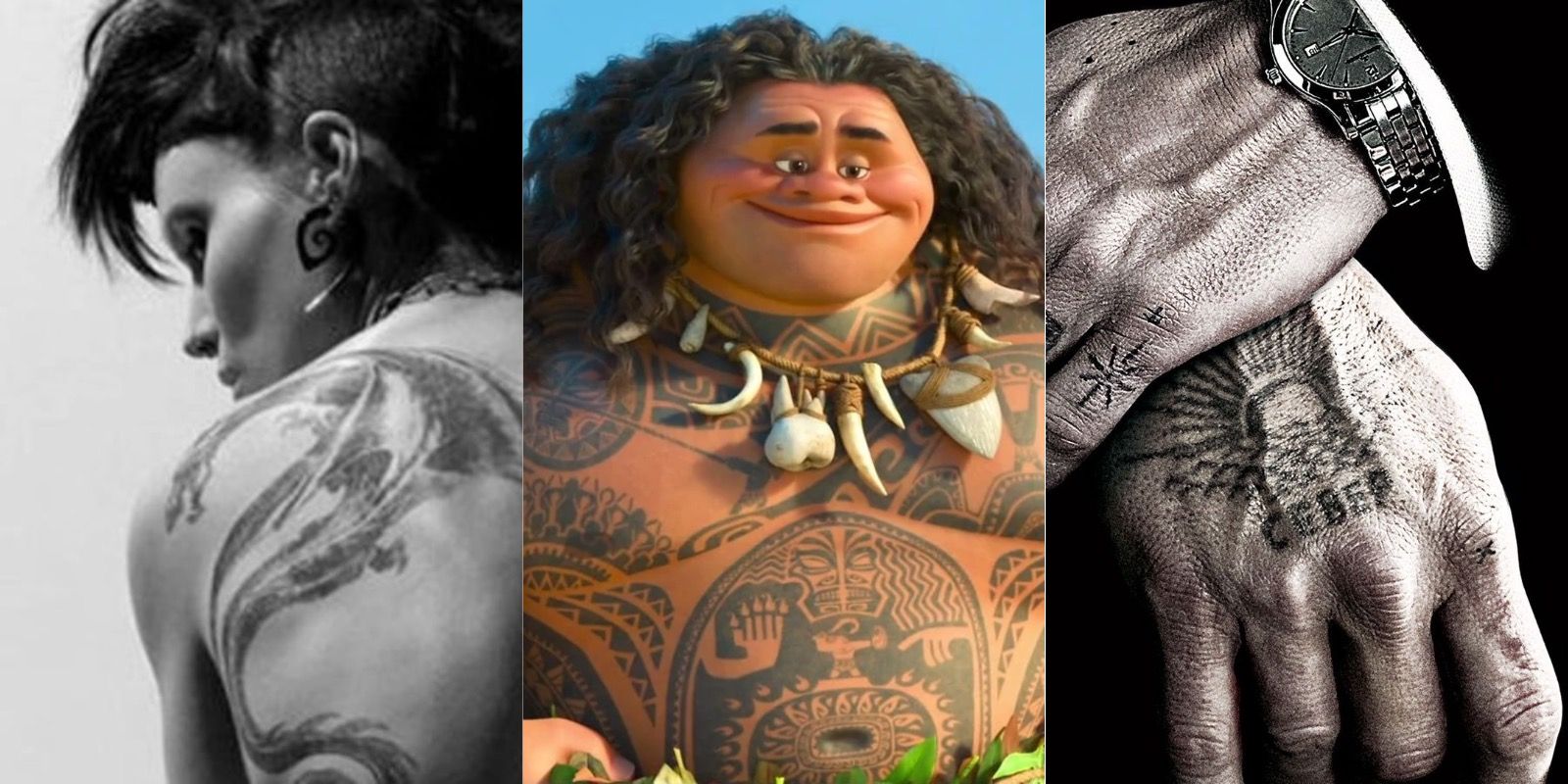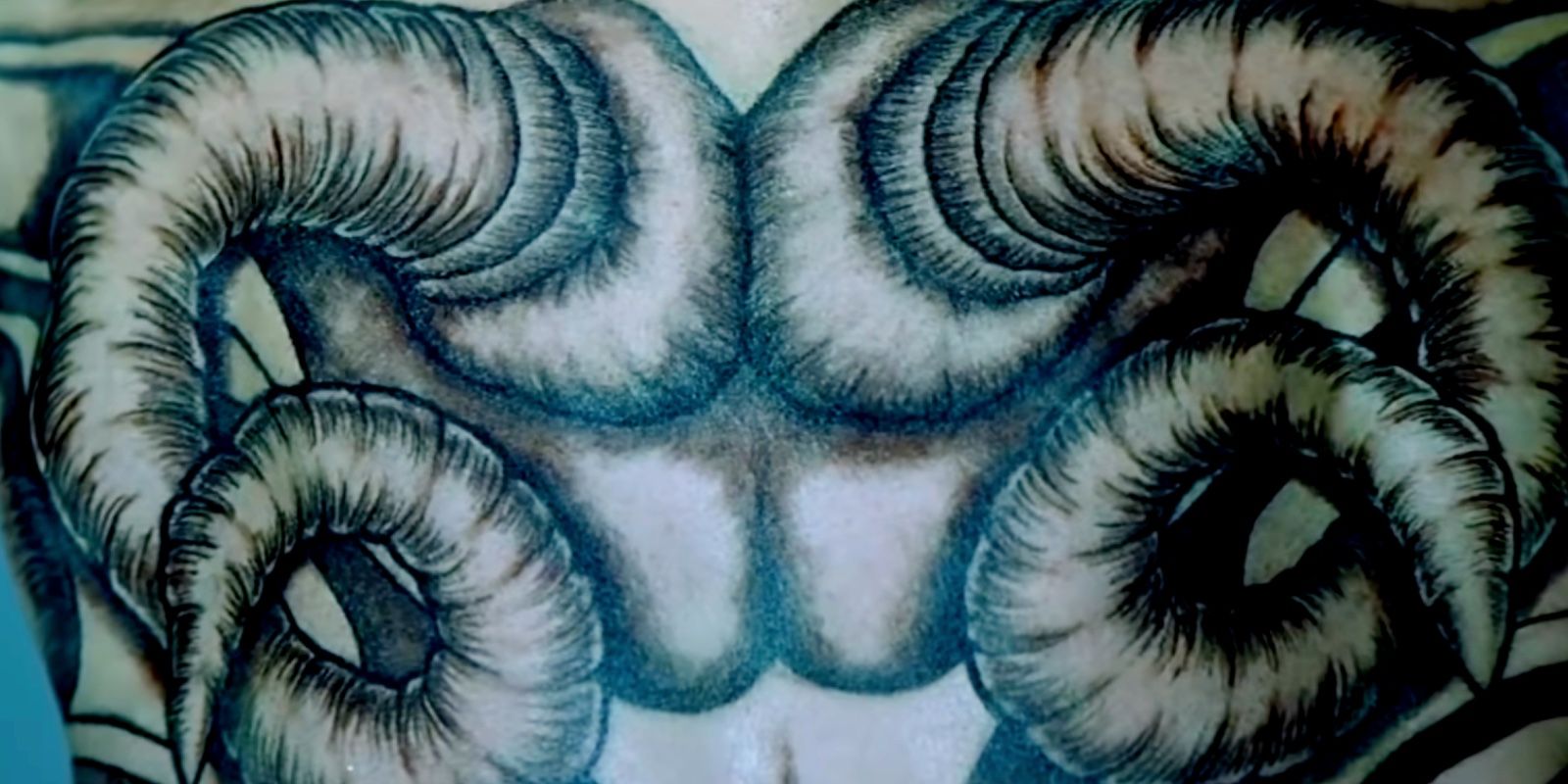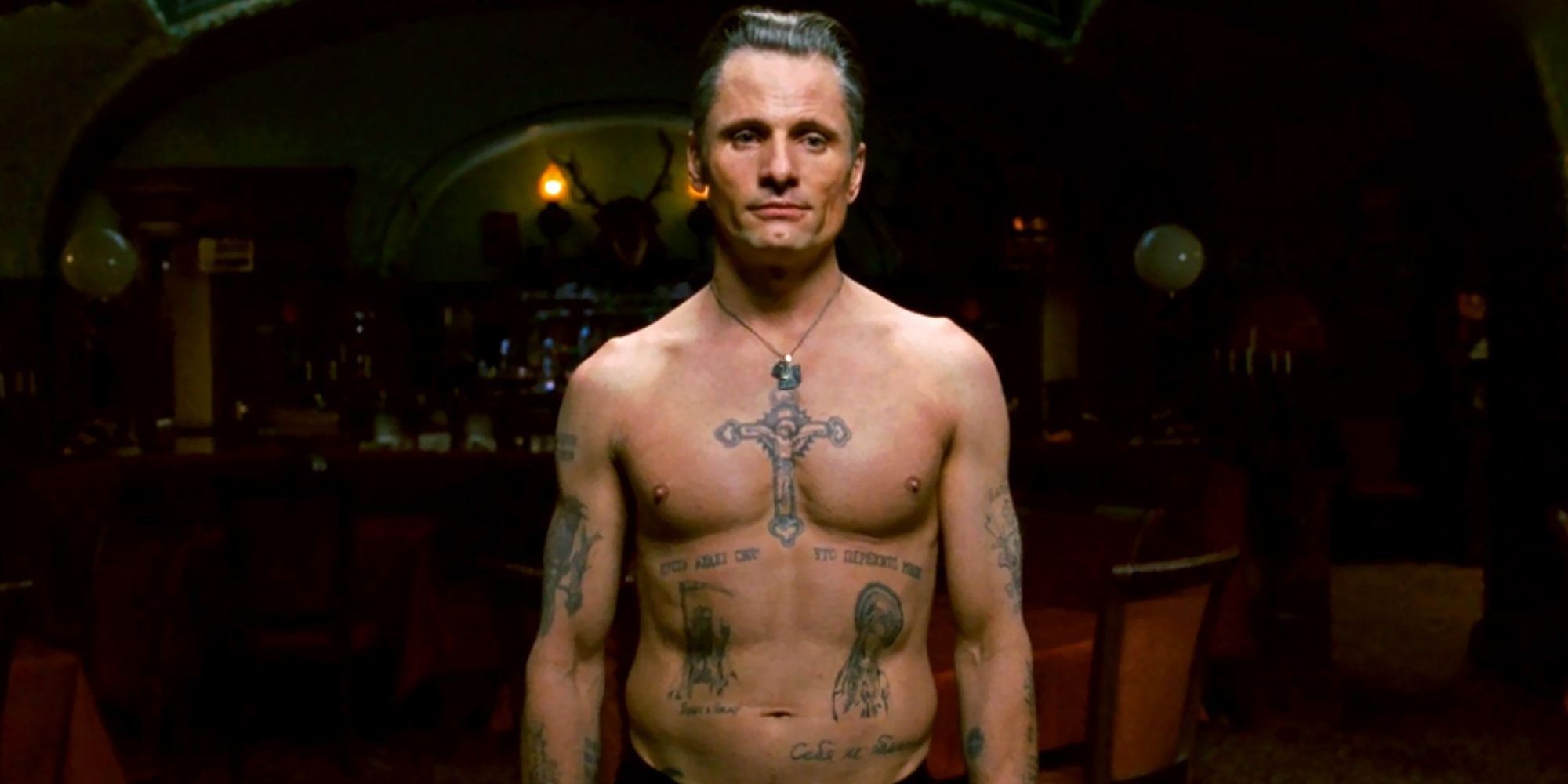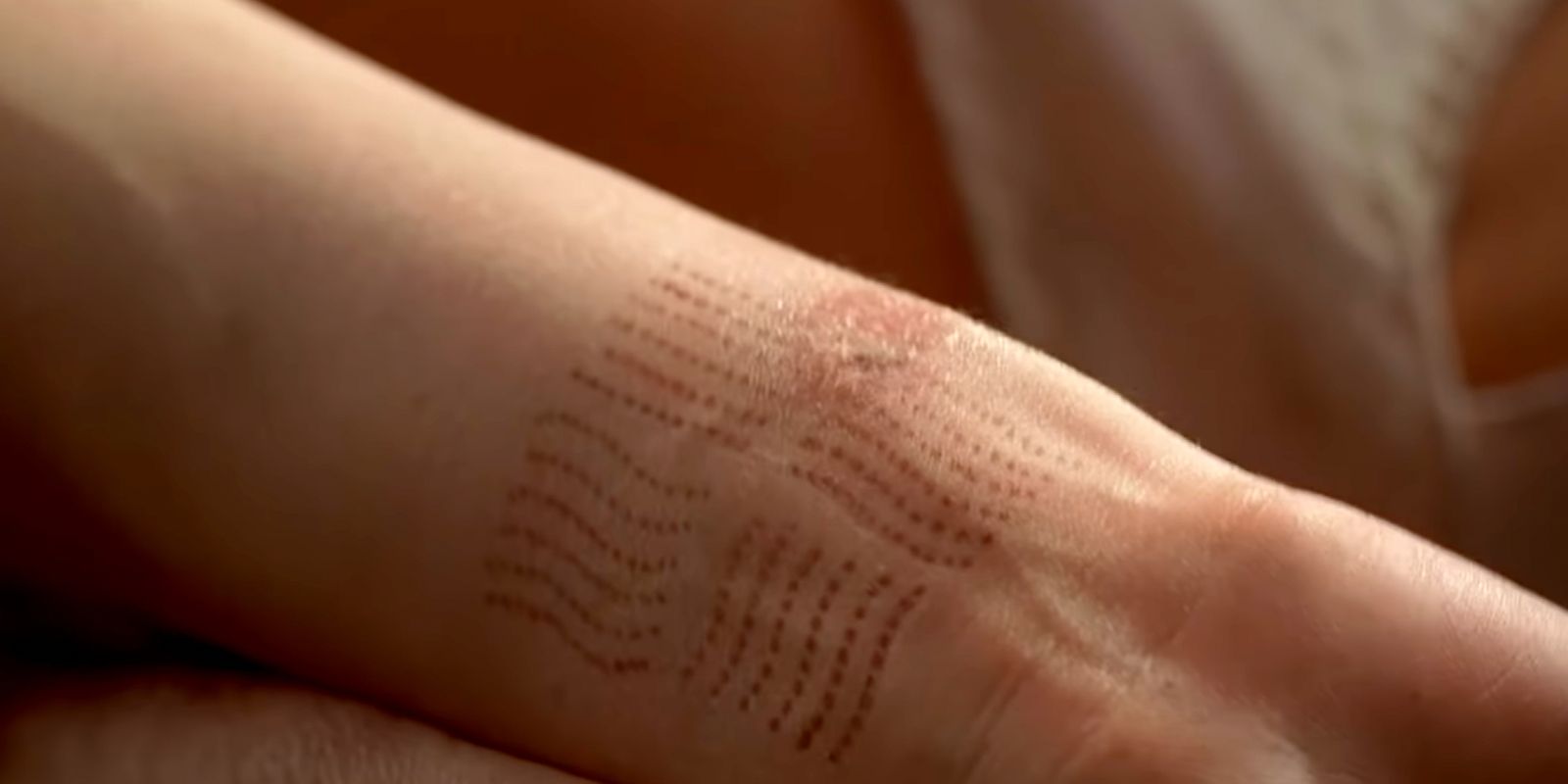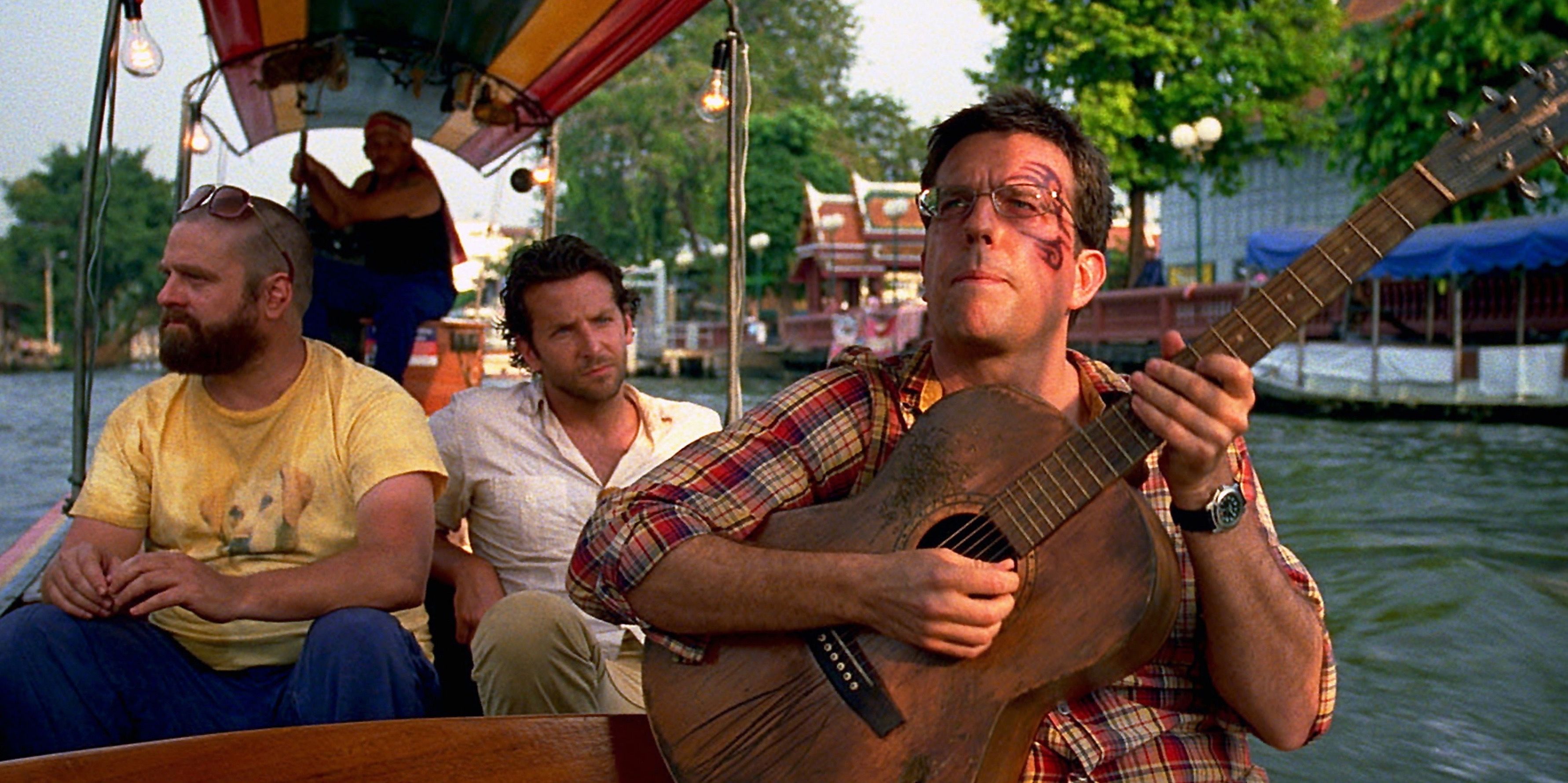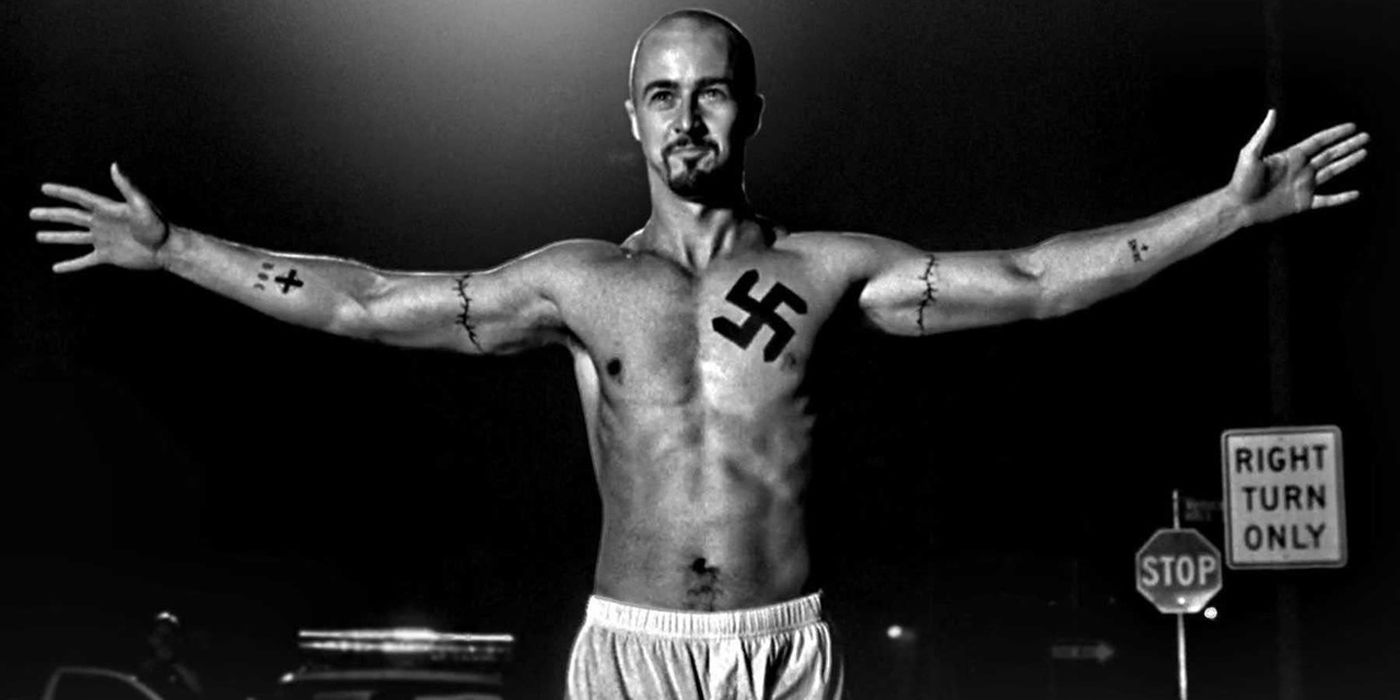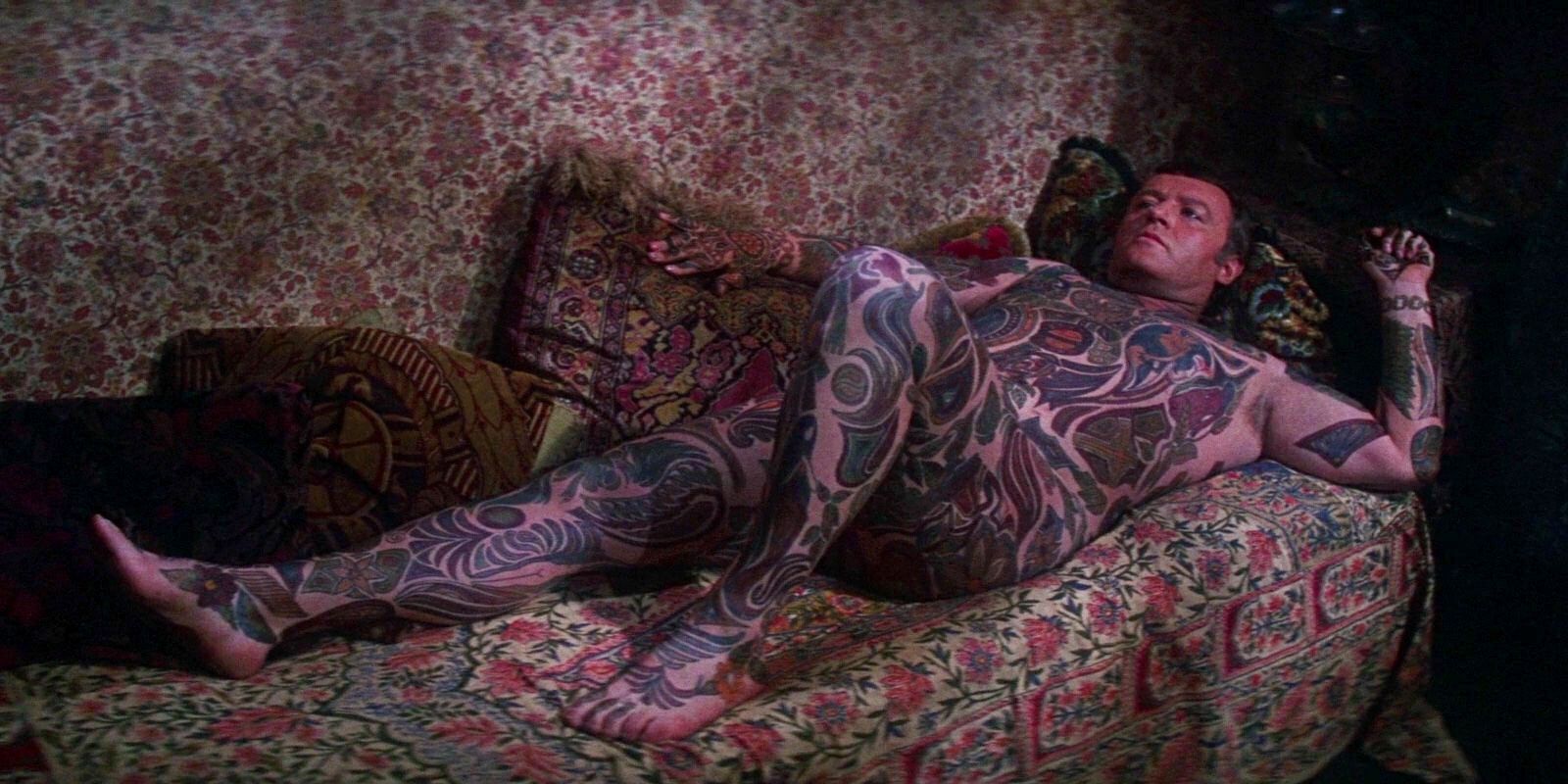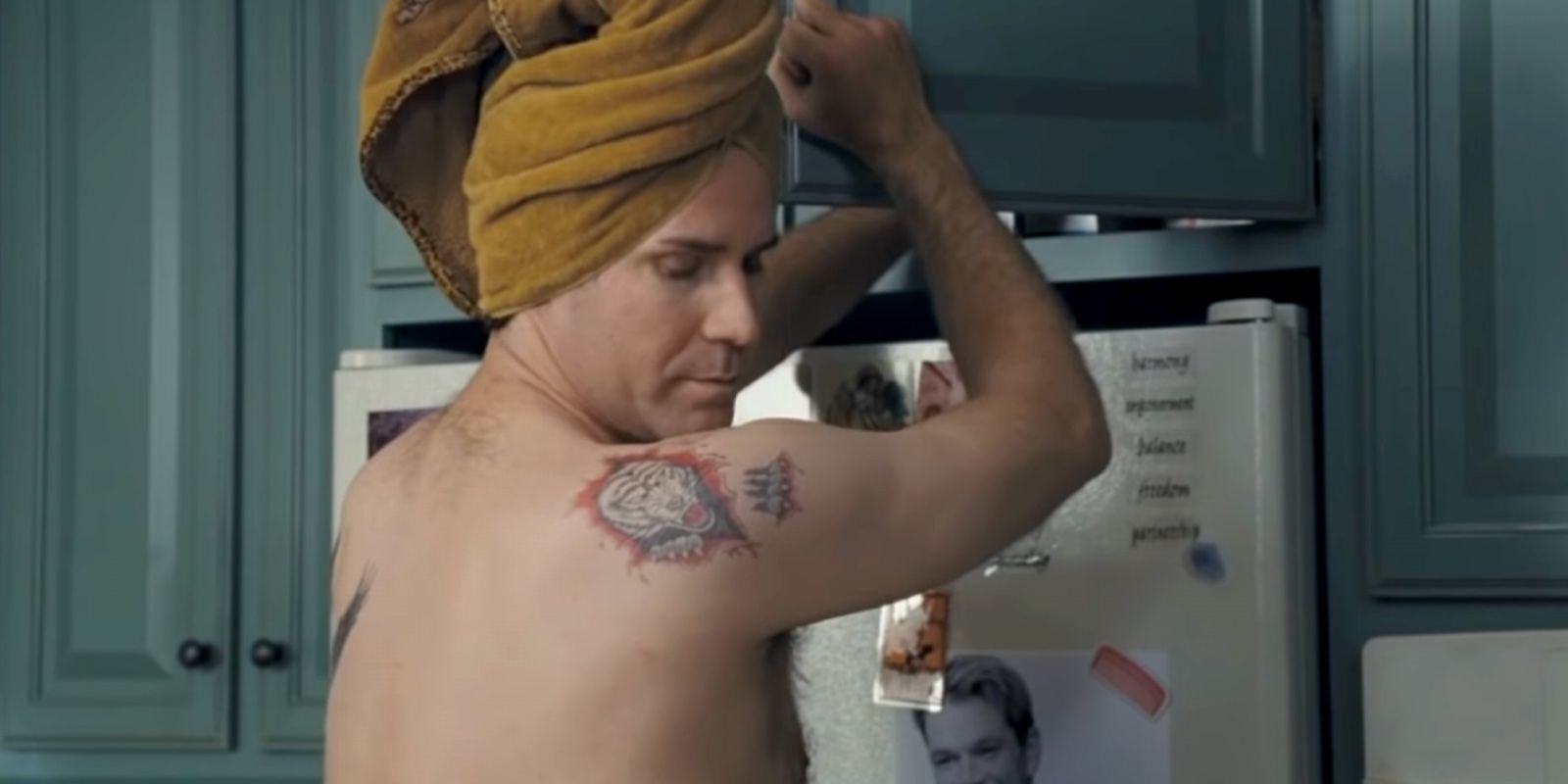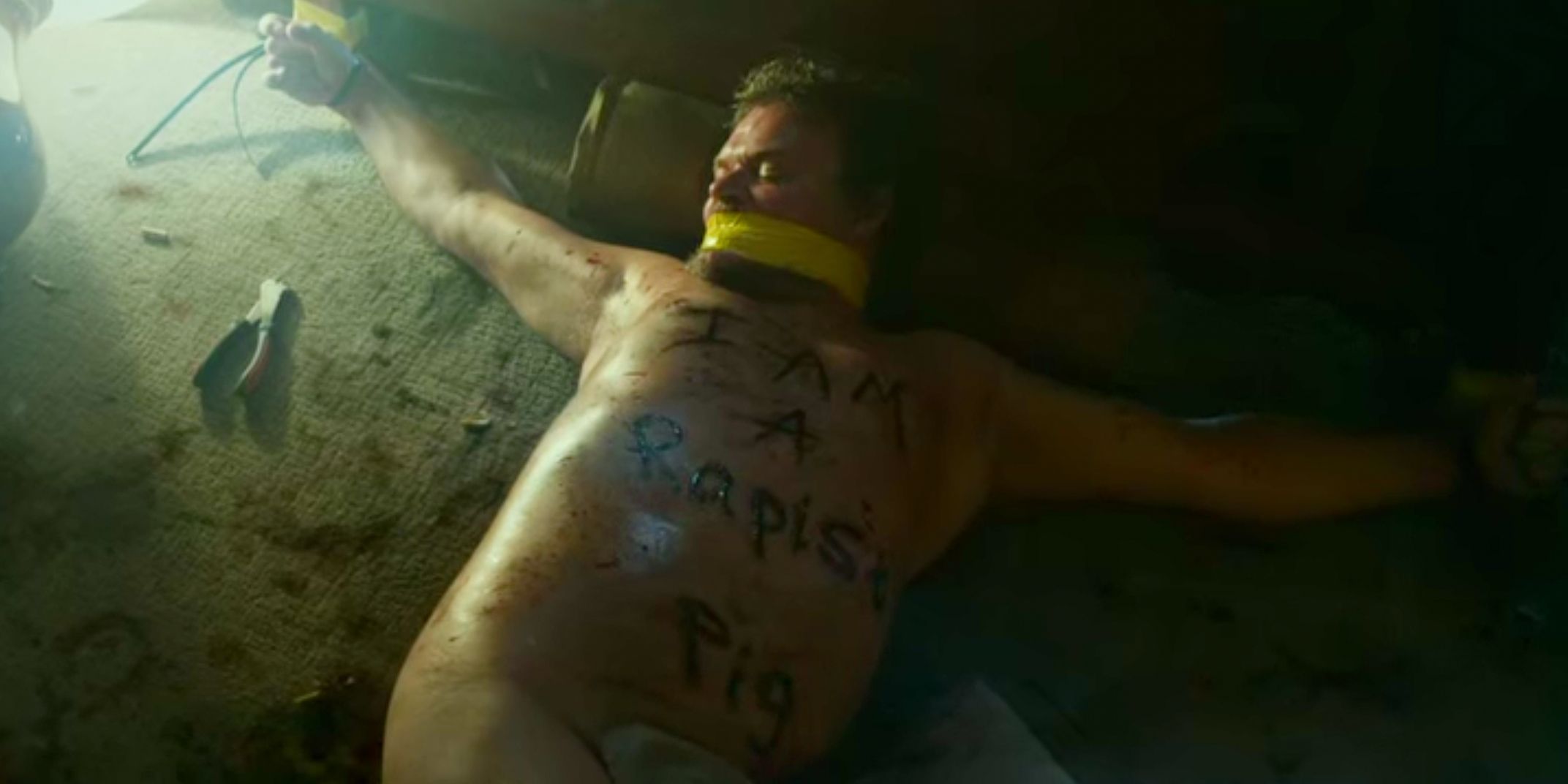Tattoos in movies are always a deliberate detail. They appear for two reasons, either they were tattoos the actors themselves had and were decidedly not covered up, or, they were painstakingly applied by a makeup crew. Whichever one is the case; a tattoo has always made its way onto the camera intentionally.
But in some films, a tattoo was considered long before a camera had even been turned on. Likely finding its first presence on the pages of a screenplay, or in the suggestions of a crew member. These tattoos are there as essential instruments in the story, serving not only as signifiers of the characters they feature on, but of the very plot itself.
The Red Dragon - Red Dragon (2002)
The Silence of the Lambs produced one of cinemas' greatest villains in Hannibal Lecter, but its prequel film Red Dragon, is often neglected for bringing audiences the character of Francis Dolarhyde, a villain equally as complex and horrifying. The film follows Dolarhyde’s pursuit in making manifest the ‘Red Dragon,’ a painting he has tattooed across the entirety of his back.
The painting in question is ‘The Great Red Dragon and the Woman Clothed with the Sun,’ painted by William Blake - one of his many paintings that depict a dragon described in the Bible’s Book of Revelation. Dolarhyde’s obsession over actualizing it in Red Dragon, through murder and bodily mutilation, leads him to treat the tattoo as sacrosanct.
Memories - Memento (2000)
Tattoos serve an extremely literal purpose in this mind-bending film from Christopher Nolan. Memento follows a character with anterograde amnesia, meaning they cannot form new memories nor recall old ones. One of their many solutions to this is to tattoo their learnings across their body - at least whilst they still remember them.
The tattoos which the protagonist chooses are blunt instructions, ‘find him and kill him,’ ‘never answer the phone,’ or the clearest, ‘John G. Raped And Murdered My Wife.' In a film that questions identity at its every turn, the tattoos imprinted on the main character are both a necessary tool to understanding the plot, as well as the character’s motivation.
Russian Prison Tattoos - Eastern Promises (2007)
The 2007 crime film Eastern Promises has been often applauded for its attention to detail in portraying Russian crime families and their brutality, its popularity has even drawn interest in a potential Eastern Promises sequel. A large part of the detail it's applauded for is due to the tattoos worn by the main character Nikolai, with each image and outline bearing significance.
This is because the film's criminals belong to the Vory V Zakone criminal brotherhood, a real-world faction of organized crime. This group has a kind of tattoo ‘coding system’ which originated in Siberian prisons. Features such as stars, ships, and cats all denote key information about a person and their crimes.
Ta Mokos - Moana (2016)
It’s no surprise that Pixar would spare no effort when depicting the intricate craftsmanship that goes into Maori tattoos (known as Ta Moko) for its feature film Moana. The film depicts the demi-god Maui, a celebrated figure in Polynesian culture, and the character's striking tattoos are carefully thought out.
Ta Mokos often tell the history of an individual’s Maori bloodline as well as their own story. For Maui, things are no different, but the Pixar animation team made the usually encoded tattoos a lot more literal in Moana - if viewers look closely, they will see Maui’s tattoos depict a smaller version of himself performing miracles to win over humanity.
Elemental Symbols - The Fifth Element (1997)
A small detail like a tattoo is forgivably forgotten in the visual feast that is Luc Besson’s The Fifth Element, a planet-hopping science fiction film the director dreamt up whilst at school, which feels as playful and eccentric as the young mind that came up with it. The wrist tattoo in The Fifth Element, sported by the character Leeloo, is crucial to its plot.
In a film that is, shockingly, about the necessity of the ‘fifth element,’ it is learned that Leeloo is the fifth element herself. The tattoo gives this away subtly, if a viewer is to look closely at it (like a character in the movie does), it depicts the other four elements in a dot-matrix.
Face Tattoo - The Hangover Part II (2011)
The plot formula of The Hangover films is pretty consistent: A group of friends awake with a hangover and work to unravel the events of the night prior. The extremities of the aftermaths faced increment with the series’ entries. In the second installment, this included a foreign country, a monkey, and a Mike Tyson face tattoo.
The tattoo is one of the first identifying features in revealing the ridiculous situation the characters have landed themselves in, and it also later allows them to discover that they started a riot the night before. The best part of the tattoo, however, is its clear call-back to the first Hangover film, where the cast had a run-in with Mike Tyson himself.
Swastika - American History X (1998)
American History X is a harsh, unforgiving film. The glimpses of light it produces are shown to be unbearably crushed by a larger cycle of violence and hatred, exemplified by its exploration of a neo-Nazi group within America. Edward Norton’s character, Derek, is the popular face of the group, but he wants to get out.
The image of Derek and the swastika tattooed across his chest has frequently been used as promotional material for the film. It also features prominently in one of the darkest and most brutal scenes in the film, marking its association with Derek’s crimes even more literal. The tattoo is a vulgar symbol of hate, and its permanence on Derek’s body is a reminder of his inability to escape his past.
Skin Illustrations - The Illustrated Man (1969)
Ray Bradbury was a prolific American writer of the 20th century. His works detailed fantastical situations as well as authentic realities, authoring a range of short stories as well as novels. The Illustrated Man was adapted from a selection of these shorts, detailing a man whose tattoos come to life when stared at long enough.
The Illustrated Man is used in the film as an overarching story in which to create a logical flow for Bradbury’s shorts anthology, with each tattoo detailing a short story. But the titular story does more than just this, provoking intrigue as to the tattoos’ origin and drawing questions as to whether the ‘skin illustrations’ portray fiction or not.
Lone Wolf - Blades Of Glory (2007)
Blades of Glory is largely only remembered for its comedic starring cast. Although it would be easy to mistake it for one of Adam McKay’s ventures with Will Ferrell like Step Brothers or Talladega Nights, Blades Of Glory stands on its own, depicting the fictional story of the world’s first male figure skating duo.
Ferrell’s character displays a few tattoos which he proudly talks through in one scene, explaining them as signifiers of sexual conquests. But the one that bears meaning to the plot is the tattoo of a lone wolf - something Ferrell’s character aligns himself with. The story is of Ferrell learning the values of real relationships, and ultimately, changing enough to invite his partner into his ‘wolfpack.'
Forced Tattoo - The Girl With The Dragon Tattoo (2011)
Swedish author Stieg Larsson tragically only caught the attention of the world after his death, with his Millenium series only reaching publication in 2005, a year after his passing. The series was a triumph, the first entry: The Girl With The Dragon Tattoo, was adapted in Sweden in 2009 and remade in 2011 by David Fincher, it followed two primary characters: an investigative journalist and a vigilante computer hacker - the titular ‘girl with the dragon tattoo.’
Though the original Swedish title was ‘Men Who Hate Women,’ it is still very much the hacker’s story, despite her not being the central protagonist. And her dragon tattoo cresting her shoulder is not the only tattoo either, in fact, one much more central to the plot is the forced tattoo she delivers upon her abuser, brandishing him with the words ‘I am a rapist pig.'

